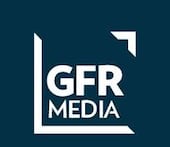We are part of The Trust Project
Marta Beatriz de León, Talented Ambassador of African Art
The designer from Carolina makes ethnic clothing and accessories with her unique, special flair
Archival note
This content was published more than 1 year ago.
March 9, 2024 - 11:00 PM

Lee la historia en español aquí.
Las noticias explicadas de forma sencilla y directa para entender lo más importante del día.

Te invitamos a descargar cualquiera de estos navegadores para ver nuestras noticias:
